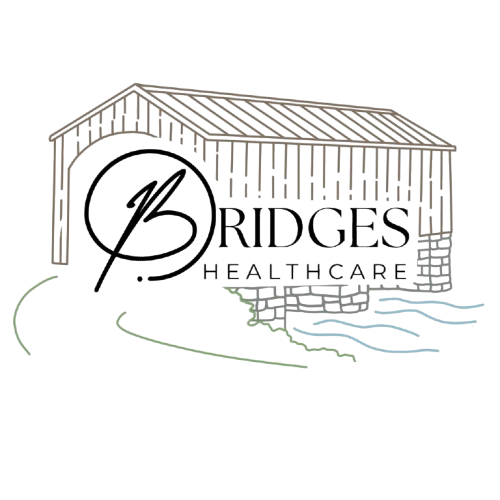Elizabeth Alexander, BSW, MSW, MPA
Accepting Clients in Indiana

Elizabeth Alexander, BSW, MSW, MPA, is a dedicated and licensed social worker with a passion for helping individuals overcome personal challenges and achieve emotional well being. She serves patients at Bridges, a telehealth practice headquartered in Indianapolis.
With a wealth of experience in treating substance use disorders and a wide range of mental health conditions—including grief, depression, anxiety, and ADHD—Elizabeth provides compassionate, evidence-based therapy tailored to meet each client’s unique needs.
Elizabeth employs various treatment modalities in her practice, including cognitive behavioral therapy (CBT), dialectical behavioral therapy (DBT), and strengths-based therapy. Her client-centered approach recognizes that clients are the experts of their own lives. Elizabeth believes in empowering individuals by honoring their experiences and insights, and she works collaboratively to develop effective strategies for growth and healing.
In addition to her clinical work, Elizabeth is deeply committed to community advocacy. She partners with nonprofits and government agencies to develop and implement policies aimed at improving the quality of life for individuals and families. Elizabeth is currently pursuing a master’s degree in public administration, which will further enhance her ability to influence systemic change and advocate for equitable mental health services.
Elizabeth’s holistic approach ensures that clients receive the support they need to thrive. Whether you are struggling with addiction, mental health issues, or seeking personal growth, Elizabeth is here to guide you.
Bachelor of Social Work (BSW)
A Bachelor of Social Work (BSW) is an undergraduate degree designed to prepare individuals for entry-level roles in the field of social work. This degree equips students with foundational knowledge and skills needed to support individuals, families, and communities facing various challenges. A BSW program typically combines academic coursework with hands-on field experiences to ensure graduates are well-prepared for the demands of the profession.
BSW coursework focuses on key topics such as human behavior, social policy, ethics, and diversity. Students learn how to assess client needs, develop care plans, and connect individuals to resources and services that address issues such as poverty, mental health, substance abuse, and housing instability. The program also emphasizes communication and advocacy skills, which are critical for effecting change at both individual and systemic levels.
Field education is a vital component of a BSW program. Through supervised internships or practicums, students gain practical experience working in settings like schools, hospitals, community agencies, or nonprofit organizations. This hands-on training allows students to apply theoretical knowledge to real-world scenarios and develop professional competence.
Graduates with a BSW can pursue careers as case managers, child welfare specialists, school social workers, or community outreach coordinators. While the BSW is sufficient for many entry-level positions, it also serves as a stepping stone for those seeking advanced roles through further education.
Master of Social Work (MSW)
A Master of Social Work (MSW) is a graduate-level degree that provides advanced training for professionals seeking leadership or specialized roles in social work. Building on the foundations of a BSW, an MSW prepares individuals for clinical practice, program management, and policy development.
MSW programs delve deeper into topics like advanced social work methods, research, mental health, and clinical assessment. Many programs offer concentrations, such as clinical social work, healthcare, or community practice, allowing students to specialize in their area of interest.
Fieldwork is a central aspect of MSW education, requiring students to complete internships in diverse professional settings. These experiences are typically more advanced than those in a BSW program and may include clinical counseling or program administration.
Graduates with an MSW can pursue licensure as clinical social workers (LCSW), enabling them to provide psychotherapy and mental health services. They are also qualified for leadership roles in nonprofit organizations, healthcare systems, and government agencies. An MSW opens doors to higher earning potential and greater career opportunities.
